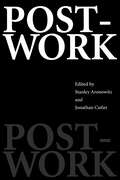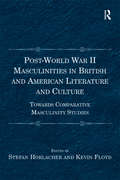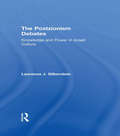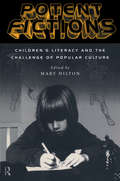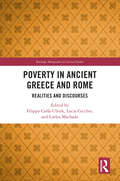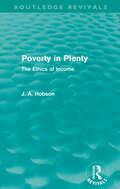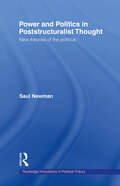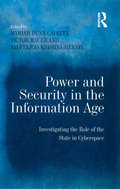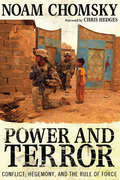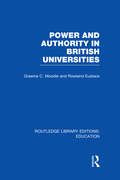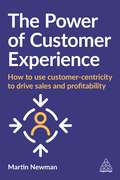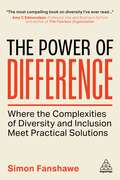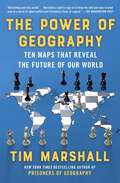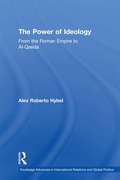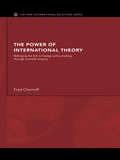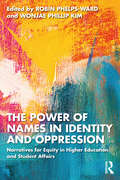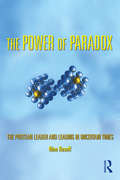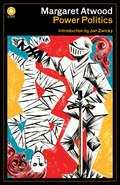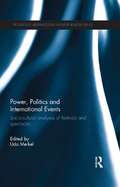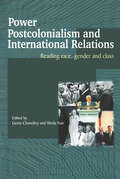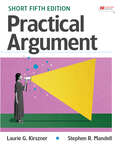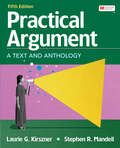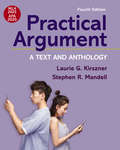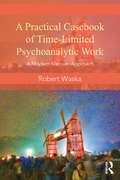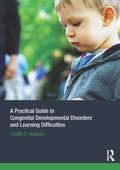Special Collections
Benetech’s Global Certified Accessible Titles
Description: Benetech’s GCA program is the first independent third-party EPUB certification to verify ebook accessibility. By creating content that is born accessible, publishers can meet the needs of all readers. Learn more: https://bornaccessible.benetech.org/
- Table View
- List View
Post-Work
by Stanley Aronowitz and Jonathan CutlerIn Post-Work, Stanley Aronowitz and Jonathan Cutler have collected essays from a variety of scholars to discuss the dreary future of work. The introduction, The Post-Work Manifesto,, provides the framework for a radical reappraisal of work and suggests an alternative organization of labor. The provocative essays that follow focus on specific issues that are key to our reconceptualization of the notion and practice of work, with coverage of the fight for shorter hours, the relationship between school and work, and the role of welfare, among others. Armed with an interdisciplinary approach, Post-Work looks beyond the rancorous debates around welfare politics and lays out the real sources of anxiety in the modern workplace. The result is an offering of hope for the future--an alternative path for a cybernation, where the possibility of less work for a better standard of living is possible.
Post-World War II Masculinities in British and American Literature and Culture
by Stefan Horlacher and Kevin FloydAnalyzing literary texts, plays, films and photographs within a transatlantic framework, this volume explores the inseparable and mutually influential relationship between different forms of national identity in Great Britain and the United States and the construction of masculinity in each country. The contributors take up issues related to how certain kinds of nationally specific masculine identifications are produced, how these change over time, and how literature and other forms of cultural representation eventually question and deconstruct their own myths of masculinity. Focusing on the period from the end of World War II to the 1980s, the essays each take up a topic with particular cultural and historical resonance, whether it is hypermasculinity in early cold war films; the articulation of male anxieties in plays by Arthur Miller, David Mamet and Sam Shepard; the evolution of photographic depictions of masculinity from the 1960s to the 1980s; or the representations of masculinity in the fiction of American and British writers such as Patricia Highsmith, Richard Yates, John Braine, Martin Amis, Evan S. Connell, James Dickey, John Berger, Philip Roth, Frank Chin, and Maxine Hong Kingston. The editors and contributors make a case for the importance of understanding the larger context for the emergence of more pluralistic, culturally differentiated and ultimately transnational masculinities, arguing that it is possible to conceptualize and emphasize difference and commonality simultaneously.
The Postzionism Debates
by Laurence J. SilbersteinThe struggle for postzionism is a conflict over national memory and the control of cultural and physical space. Laurence J. Silberstein analyzes the phenomenon of postzionism and provides an intervention into this debate.
Potent Fictions
by Mary HiltonToday's children spend more time than ever before watching television, playing computer games and reading comic and pulp fiction. Many of these are directly designed by the toy and media industry. Are children therefore simply being manipulated? There is widespread concern that because of these kinds of popular fiction, children do not read `quality' literature, resulting in lower standards of literacy. There is also the further fear that because many of these popular media portray highly stereotyped, gendered images, this too will have a damaging effect on children. Mary Hilton's fascinating book proves that there is another side to the argument. We do not have to view popular culture as a threat to our children or their education. The writers of this collection show how, used carefully alongside other types of literature, popular culture can actually help teachers to develop literacy in a broad and positive sense.
Poverty in Ancient Greece and Rome
by Filippo Carlà-Uhink, Lucia Cecchet, and Carlos MachadoThis volume presents an innovative picture of the ancient Mediterranean world. Approaching poverty as a multifaceted condition, it examines how different groups were affected by the lack of access to symbolic, cultural and social – as well as economic – capital. Collecting a wide range of studies by an international team of experts, it presents a diverse and complex analysis of life in antiquity, from the archaic to the late antique period. The sections on Greece, Rome, and Late Antiquity offer in-depth studies of ancient life, integrating analysis of socio-economic dynamics and cultural and discursive strategies that shaped this crucial element of ancient (and modern) societies. Themes like social cohesion and control, exclusion, gender, agency, and identity are explored through the combination of archaeological, epigraphic, and literary evidence, presenting a rich panorama of Greco-Roman societies and a stimulating collection of new approaches and methodologies for their understanding. The book offers a comprehensive view of the ancient world, analysing different social groups – from wealthy elites to poor peasants and the destitute – and their interactions, in contexts as diverse as Classical Athens and Sparta, imperial Rome, and the late antique towns of Egypt and North Africa. Poverty in Ancient Greece and Rome: Discourses and Realities is a valuable resource for students and scholars of ancient history, classical literature, and archaeology. In addition, topics covered in the book are of interest to social scientists, scholars of religion, and historians working on poverty and social history in other periods.
Poverty in Plenty
by J. A. HobsonFirst published in 1931, this Routledge Revivals title reissues J.A Hobson’s analysis of financial distribution in the early years of Twentieth Century Britain. The book focuses on the moral questions that he considered to be important in regard to the economic reforms that were necessary to secure the utilisation of modern productivity for the welfare of mankind. In this work, Hobson considers the wasteful working of the economic system, with its over-production, under-consumption and unemployment and states that these errors are due to the unfair way in which income is apportioned among the nations, classes and individuals that produce it. Poverty in Plenty argues for a conscious economic government inspired by a sense of justice and humanity. It makes suggestions towards the establishment of such a government and presents business prosperity as a problem of morals.
Power and Politics in Poststructuralist Thought
by Saul NewmanThis book explores the impact of poststructuralism on contemporary political theory by focussing on problems and issues central to politics today. Drawing on the theoretical concerns brought to light by the ‘poststructuralist’ thinkers Foucault, Derrida, Lacan, Deleuze and Max Stirner, Newman provides a critical examination of new developments in contemporary political theory: post-Marxism, discourse analysis, new theories of ideology and power, hegemony, radical democracy and psychoanalytic theory. He re-examines the political in light of these developments in theory to suggest new ways of thinking about politics through a reflection on the challenges that confront it. This volume will be of great interest to students of postmodernism and poststructuralist theory in political science, philosophy, sociology, philosophy and cultural studies.
Power and Security in the Information Age
by Myriam Dunn Cavelty and Victor MauerThe marriage of computers and telecommunications, the global integration of these technologies and their availability at low cost is bringing about a fundamental transformation in the way humans communicate and interact. But however much consensus there may be on the growing importance of information technology today, agreement is far more elusive when it comes to pinning down the impact of this development on security issues. Written by scholars in international relations, this volume focuses on the role of the state in defending against cyber threats and in securing the information age. The manuscript is captivating with the significance and actuality of the issues discussed and the logical, knowledgeable and engaged presentation of the issues. The essays intrigue and provoke with a number of 'fresh' hypotheses, observations and suggestions, and they contribute to mapping the diverse layers, actors, approaches and policies of the cyber security realm.
Power and Terror
by Noam Chomsky and John Junkerman and Takei MasakazuFirst Published in 2016. Routledge is an imprint of Taylor & Francis, an Informa company.
Power & Authority in British Universities
by Graeme Moodie and Rowland EustaceIn facing the question ‘who runs the universities’, the authors have carried out over a period of years an extensive programme of interviews, both formal and informal, as well as a detailed study of documents. Their findings are written up in the language of politics – in terms of power, authority, influence, regulation and decision making. The result is thus of value both to those with a practical interest in universities and to those with a more theoretical interest in politics or organisational behaviour.
The Power of Customer Experience
by Martin NewmanHaving a customer-centric business model has evolved from being a nice-to-have to a must-have for any organization. A focus on products and services alone is no longer enough to outstrip the competition. In the current digital ecosystem, consumers can instantly compare products, prices and services with the touch of a button from the comfort of their home. Therefore, every organization must now focus on their overall customer experience to achieve the tricky but imperative balance between efficiency and personalization. In The Power of Customer Experience, Martin Newman presents clear data that proves the direct link between customer-centricity with profit and shareholder value. Drawing on examples from well-known companies like JD Sports, Delta Airlines, Lego, Selfridges, BMW, Hilton, Deliveroo and Uber, it analyses how organizations provide the most effective customer experience, and reveals the strategies that have allowed them to succeed. Featuring tips and tools throughout, it will enable readers to understand the impact of customer centricity on some of the best known brands, to gain invaluable insights that can be used to grow emerging brands and revitalize existing brands.
The Power of Difference
by Simon FanshaweGood intentions are not enough - real diversity is about change. This book explains why it's our differences and how we combine them that creates true diversity and generates innovation, fresh thinking and ultimately, success. With clarity and wit, The Power of Difference brings together the author's own experiences with the latest research to explain why inclusion is more than just being nice to people, why unconscious bias training isn't the fix we need and why listening to all individual voices, not just assuming that one viewpoint represents a group, is key. Offering insight, analysis and practical solutions, The Power of Difference is a must read for all managers, leaders and HR professionals as well as anyone looking to engage with the topic, who doesn't know where to start. Exploring how to confront bias, question assumptions and avoid generalizations, this book illustrates why diversity should be part of the overall business strategy, not separate from it. It shows how for innovation and diversity to flourish, we must create spaces that are safe for disagreement, not from disagreement. Written in an engaging yet practical style, this book courageously tackles some of the most significant issues at work today.
The Power of Geography
by Tim MarshallFrom the author of the New York Times bestseller Prisoners of Geography, a fascinating, &“refreshing, and very useful&” (The Washington Post) follow-up that uses ten maps to explain the challenges to today&’s world powers and how they presage a volatile future.Tim Marshall&’s global bestseller Prisoners of Geography offered us a &“fresh way of looking at maps&” (The New York Times Book Review), showing how every nation&’s choices are limited by mountains, rivers, seas, and walls. Since then, the geography hasn&’t changed, but the world has. Now, in this &“wonderfully entertaining and lucid account, written with wit, pace, and clarity&” (Mirror, UK), Marshall takes us into ten regions set to shape global politics. Find out why US interest in the Middle East will wane; why Australia is now beginning an epic contest with China; how Turkey, Saudi Arabia, and the UK are cleverly positioning themselves for greater power; why Ethiopia can control Egypt; and why Europe&’s next refugee crisis looms closer than we think, as does a cutting-edge arms race to control space. Innovative, compelling, and delivered with Marshall&’s trademark wit and insight, this is &“an immersive blend of history, economics, and political analysis that puts geography at the center of human affairs&” (Publishers Weekly).
The Power of Ideology
by Alex Roberto HybelSince the Roman Empire, leaders have used ideology to organize the masses and instil amongst them a common consciousness, and equally to conquer, assimilate, or repel alternative ideologies. Ideology has been used to help create, safeguard, expand, or tear down political communities, states, empires, and regional or world systems. This book explores the multiple effects that competing ideologies have had on the world system for the past 1,700 years: the author examines the nature and content of Christianity, Islam, Confucianism, Protestantism, secularism, balance-of-power doctrine, nationalism, imperialism, anti-imperialist nationalism, liberalism, communism, fascism, Nazism, ethno-nationalism, and transnational radical Islamism; alongside the effects their originators sought to craft and the consequences they generated. This book argues that for centuries world actors have aspired to propagate through the world arena a structure of meaning that reflected their own system of beliefs, values and ideas: this would effectively promote and protect their material interests, and - believing their system to be superior to all others – they felt morally obliged to spread it. Radical transnational Islamism, Hybel argues, is driven by the same set of goals. This book will be of interest to students and scholars of international politics, international relations theory, history and political philosophy.
The Power of International Theory
by Fred ChernoffThis new study challenges how we think about international relations, presenting an analysis of current trends and insights into new directions. It shows how the discipline of international relations was created with a purpose of helping policy-makers to build a more peaceful and just world. However, many of the current trends, post-positivism, constructivism, reflectivism, and post-modernism share a conception of international theory that is inherently incapable of offering significant guidance to policy-makers. The Power of International Theory critically examines these approaches and offers a novel conventional-causal alternative that allows the reforging of a link between IR theory and policy-making. While recognizing the criticisms of earlier forms of positivism and behaviouralism, the book defends holistic testing of empirical principles, methodological pluralism, criteria for choosing the best theory, a notion of 'causality,' and a limited form of prediction, all of which are needed to guide policy-makers. This is an essential book for all students and scholars of international relations.
The Power of Names in Identity and Oppression
by Robin Phelps-Ward and Wonjae Phillip KimStories and personal narratives are powerful tools for engaging in self-reflection and application of critical theory in higher educational contexts. This edited text centers "name stories" as a vehicle to promote readers’ understanding of social identity, oppression, and intersectionality in a variety of educational contexts from residence halls and classrooms to faculty development workshops and executive leadership board rooms. The contributors in this volume reveal how names may serve as entry points through which to foster learning and facilitate conversations about identity, power, privilege, and systems of oppression. Through an intersectional perspective, chapter authors reveal interlocking systems of oppression in education while also providing recommendations, lessons learned, reflection questions, and calls to action for those working to transform and advance equity-minded campus climates. This unique volume is for educators at colleges and universities doing equity work, seeking ways to initiate, facilitate, and maintain rich conversations about identity.
The Power of Paradox
by Nina RosoffLeaders’ actions can have consequences opposite to those they intend. These unintentional results are difficult to detect, understand, and change. Consequently, leaders’ actions tend to persist resulting in further unexpected outcomes. This can create a vicious cycle of leadership failure. With all their best efforts, strategic, financial, scenario, human capital and operational plans in place, they fail. Unaware, they self-sabotage and sabotage others; again, the result is unintended consequences, no matter how hard they try. This book gives a glimpse into why and how this happens, and what to do about it. Understanding the Power of Paradox can empower leaders in uncertain times. Paradox reveals uncertainty giving leaders room to breathe and time to think, better able to deal with ambiguity and manage complexity, no longer stymied. Learning to think differently and behave with capabilities, you already have, more resilient, adaptive and flexible leaders execute conscious actions effectively, inspire and empower others, creating the consequences they intend, successful Protean Leaders.
Power Politics
by Margaret AtwoodA groundbreaking meditation on sexual politics, love, and human tenacity from the world-renowned pioneer of feminist writing and prophetic author of The Handmaid’s Tale, Margaret Atwood.When it first appeared in 1971, Margaret Atwood’s Power Politics startled readers with its vital dance of woman and man. It still startles today, and is just as iconoclastic as ever. These poems occupy all at once the intimate, the political, and the mythic. Here Atwood makes us realize that we may think our own personal dichotomies are unique, but really they are multiple, universal. Clear, direct, wry, and unrelenting — Atwood’s poetic powers are honed to perfection in this seminal work from her early career.
Power, Politics and International Events.
by Udo MerkelAlthough the event management field has grown considerably over the last decade, critical, social-scientific studies of the international events industry are rare. This book intends to help fill this void. It focuses on power, social and political relations, conflicts and controversies in the context of international events, popular festivals and famous spectacles. It draws on recent primary research and offers a diverse range of new and intriguing case studies, for example the Arirang Festival in North Korea, the Gay Games, the Gymnaestrada, horse-racing events, the London 2012 Olympics, regional and rural festivals, the World Baseball Classic, World Fairs/Expos and U2 concerts. The main aim of this volume is to bring the critical, social-scientific analysis of events, festivals and spectacles more into the core of the teaching of events management degree programmes. The book draws extensively upon the disciplines of politics, sociology, cultural studies and history.In the process, it addresses key themes such as: • political economy• politics of popular culture• the global and the local• regionalism and globalization• nations and nationalism• international relations and foreign policy. This groundbreaking collection of essays is unique and innovative. It will be an essential source for students, researchers and academics with a keen interest in critical, social-scientific analyses of events.
Power, Postcolonialism and International Relations
by Geeta Chowdhry and Sheila Nair"Chowdhry and Nair, along with the authors of this volume, make a timely, vital, and deeply necessary intervention in international relations - one that informs theoretically, enriches our knowledge of the world through its narratives, and forces us to confront the differentiated wholeness of our humanity. Readers will want to emulate the skills and sensibilities they offer.."Naeem Inayatullah, Ithaca College This work uses postcolonial theory to examine the implications of race, class and gender relations for the structuring or world politics. It addresses further themes central to postcolonial theory, such as the impact of representation on power relations, the relationship between global capital and power and the space for resistance and agency in the context of global power asymmetries.
Practical Argument
by Laurie G. Kirszner and Stephen R. MandellPractical Argument makes argument accessible by avoiding technical jargon and emphasizing how arguments are constructed and written in terms of contemporary issues students recognize and care about.
Practical Argument
by Laurie G. Kirszner and Stephen R. MandellPractical Argument‘s expert step-by-step approach helps students become more accomplished argument writers.
Practical Argument with 2020 APA and 2021 MLA Updates
by Laurie G. Kirszner and Stephen R. MandellThis ebook has been updated to provide you with the latest guidance on documenting sources in MLA style and follows the guidelines set forth in the MLA Handbook, 9th edition (April 2021).More than ever, successful argumentation is a major part of academic success—and has plenty of real-world application. But students don’t benefit when they are bogged down with technical jargon and abstraction. That’s where Practical Argument comes in. Bestselling authors Laurie Kirszner and Stephen Mandell make argumentative writing accessible with a scaffolded, step-by-step approach to convey what students need to know about argument, in understandable language. The Fourth Edition includes an even more contemporary and diverse array of readings, as well as new coverage of the kinds of visual arguments students are likely to encounter in their everyday lives.
A Practical Casebook of Time-Limited Psychoanalytic Work
by Robert WaskaModern Kleinian Therapy is a model of effective psychoanalytic work that offers relief to deep internal conflicts by establishing and maintaining analytic contact, and beginning to unravel, modify, and heal turbulent and torn minds. This book defines Modern Kleinian Therapy as a modality for treating severely affected patients in a fairly traditional psychoanalytic manner, even when the environment or frequency of sessions are compromised. Chapter by chapter the book provides detailed clinical material to illustrate the complex dynamics that unfold when working with more closed off patients, and each case report shows the often limited clinical situations that the contemporary analyst must contend with. The book's detailed material serves to emphasize the nature of psychoanalytic work with individuals and couples, who otherwise rarely find their way to healthy attachment or reciprocal whole object relational harmony. Included in the book: * Technical and theoretical methods of Modern Kleinian Therapy * Psychoanalytic treatments to modify internal object relational conflicts * The Modern Kleinian Therapy approach to couple's treatment * The value of analytic contact. A Practical Casebook of Time-Limited Psychoanalytic Work: A Modern Kleinian Approach introduces new aspects of Kleinian work and offers a contemporary view on Kleinian techniques and concepts. It will be valuable reading for psychotherapists, mental health workers, and psychoanalytic therapists.
A Practical Guide to Congenital Developmental Disorders and Learning Difficulties
by Judith P. HudsonTo give children with congenital developmental conditions that manifest special learning needs and specific disabilities their best chance to succeed, early identification and appropriate interventions and support, is necessary. This text highlights what to look for when there are concerns about a child’s development. Practical and accessible, it is divided into three sections: Part 1 looks at the theory and policy context, discussing the social model of disability, the responsibility of health, social care and education services to the child and family and the role of reviews and assessment in recognising developmental disorders. Part 2 provides a reference guide to atypical developmental conditions and disorders. For each condition, aetiology, prominent theories and research, profile of features – including triggers and behaviours, diagnostic assessment procedures and appropriate interventions are given and links made to sources of further information and support. Part 3 explores practical issues how to work sensitively and effectively with children and their families, looking at the psychological implications of diagnosis, and how to plan, promote, deliver and evaluate multi-agency support. Designed to support professionals working within a multi-modal, collaborative approach to assessment and intervention processes, it is suitable for health visitors, allied health therapists, nurses, teachers and social care practitioners. It is also a useful reference for students in these areas learning about child development and includes critical reading exercises; online searching tasks; self-assessment questions; reflective activities and document analysis prompts.
